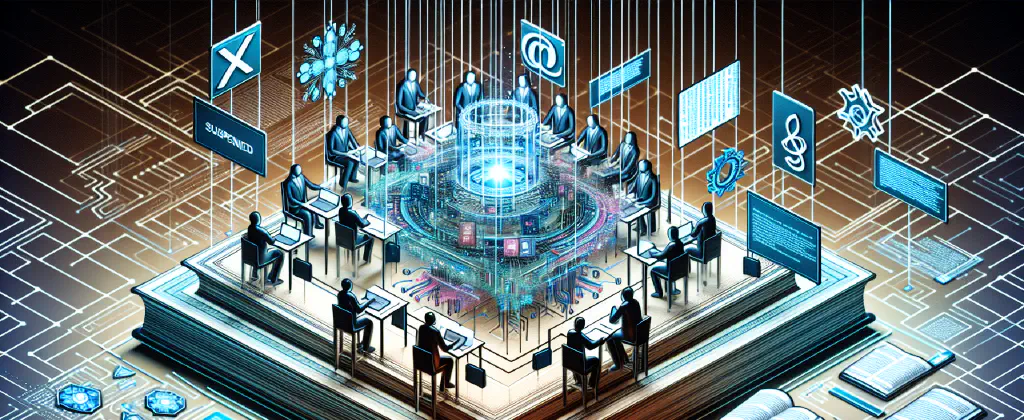16. December 2023
OpenAI's Suspension of ByteDance's Account Amidst Ethical Debate

OpenAI recently made headlines when it suspended ByteDance’s account for using GPT to train its own AI model. The move sparked a moral and legal debate about the use of copyrighted content and the ethics of AI-generated output. While OpenAI’s action may seem hypocritical to some, there are substantive differences worth considering.
Understanding the Difference
There is a distinction between using content and using a model. Pretraining a GPT 4-class model from raw data requires tremendous resources, including trillions of tokens and millions of dollars in compute. On the other hand, distilling a model using GPT 4’s output requires significantly less data. OpenAI, with its resources, is probably subsidizing compute at their current per-token cost, making it unsustainable to allow widespread usage of their pretrained models.
The debate becomes more complex when we consider the morality of training on internet-scale text data. While it has been standard practice since the early days of the internet, there are questions of how much synthesis is allowed from the training data. The morality and legality of content consumption versus production become more intricate.
The Value of Content Creation
One argument raised in this debate is the effort and resources that go into creating content. Whether it’s writing books, producing videos, or conducting research, there is significant value and effort involved in crafting high-quality content. However, it is important to note that OpenAI’s model does not directly reproduce copyrighted output. Instead, it utilizes the massive amount of data available on the internet, which has been freely accessible to the public.
The Cost of Maintaining Content
The cost of maintaining content is another aspect to consider. While content creators put in significant effort and resources, once the content is created and published, the cost of its maintenance is relatively low. OpenAI’s use of GPT to generate output does not impose additional costs on content owners. The potential impact on content creators’ income would need to be proven. It is worth noting that AI-generated content has coexisted with carefully produced content for some time now, and its impact on consumption patterns is not universally detrimental.
The Copyright Debate
The question of copyright in AI-generated output also emerges. Machine-generated works are generally not eligible for copyright, according to current legal understanding. Courts have ruled that AI content does not qualify for copyright protection. However, as AI continues to advance, laws may need to be adapted to address the evolving landscape of generative AI and copyright ownership.
The Role of Human Input
A crucial factor is the level of human creative input in the generation of AI output. Simply providing a prompt may not be sufficient to claim copyright ownership, as the resulting work is still predominantly the product of the AI system. However, there are scenarios where human guidance plays a more significant role in shaping AI-generated content, wherein copyright ownership by the human guiding the AI system may be more reasonable.
Moving Forward and Adapting Laws
The rise of generative AI has brought to light previously irrelevant edge cases in copyright law. As AI continues to push boundaries, legislation will likely need to adapt to address the ethical and legal considerations surrounding AI-generated content and copyright ownership. It is an ongoing process, as seen in cases like the Monkey selfie copyright dispute, which shed light on the complexities of copyright in relation to autonomous systems and non-human agents.
While the ethical and legal debates continue, it is clear that OpenAI’s suspension of ByteDance’s account and the larger implications of AI-generated content have raised thought-provoking questions. As technology advances, it becomes more important to strike a balance between innovation, fairness to content creators, and the ethical use of AI systems.